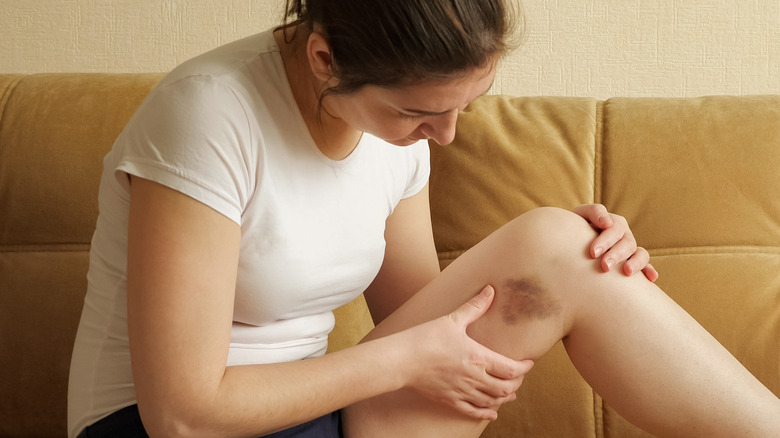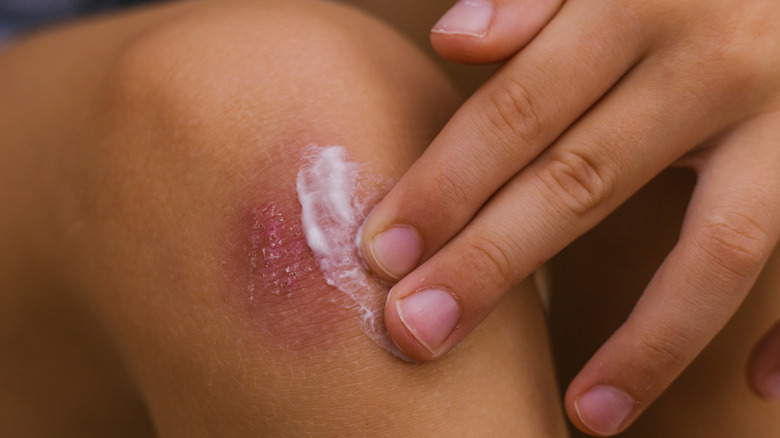What It Really Mean When Your Bruise Itches
A bruise, or contusion, is your body's natural response to an injury that appears on the skin when you hit a surface hard enough to rupture internal capillaries, releasing blood into the neighboring tissues, according to MedicalNewsToday. Bruises look like discolored marks on the skin and are red, purple, or yellow. When touched, they may or may not be painful, depending on how you got them. Bruises are more common in the elderly, as they have fragile skin and an increased risk of getting injured.
Bruises may also develop as a result of nutritional deficiencies. If your body has insufficient iron to produce heme-rich blood, you might notice random bruising (via Healthline). Similarly, bruises could appear as a result of severe vitamin C deficiency. At times, contusions may develop as a side-effect of medication, and they are often not tender or painful when pressed. Similar to abrasions and cuts, it's common for bruises to itch and cause discomfort. Usually, they're nothing to worry about, but rather a positive sign.
What causes a bruise to itch?
Naturally, there comes a point when a bruise may start to change in appearance, and the color may turn from dark to yellow. At the same time, it could begin to itch, which is primarily because of healing.
According to a 2015 study published in Chronic Wound Care Management and Research, itching typically happens when during the healing process, when an anti-allergenic chemical called histamine is released. It is a known trigger for inflammatory response. As a result, you may start itching the bruise, which further stimulates the nerves to create a temporary itching cycle.
While itching can be temporarily comforting, with continued scratching, it's possible for your skin to turn flakey and dry. That can cause further aggravation. If you have particularly dry skin, itching may feel far worse to you. According to MedicalNewsToday, dry skin bruises are usually more tender and painful.
Luckily, there are ways to get rid of bruise itching, such as using a cool or warm compress or applying over-the-counter topical creams (via Verywell Health). You can also avoid using soaps, as the chemicals could irritate the region more. It helps to moisturize the skin using a mild lotion.


